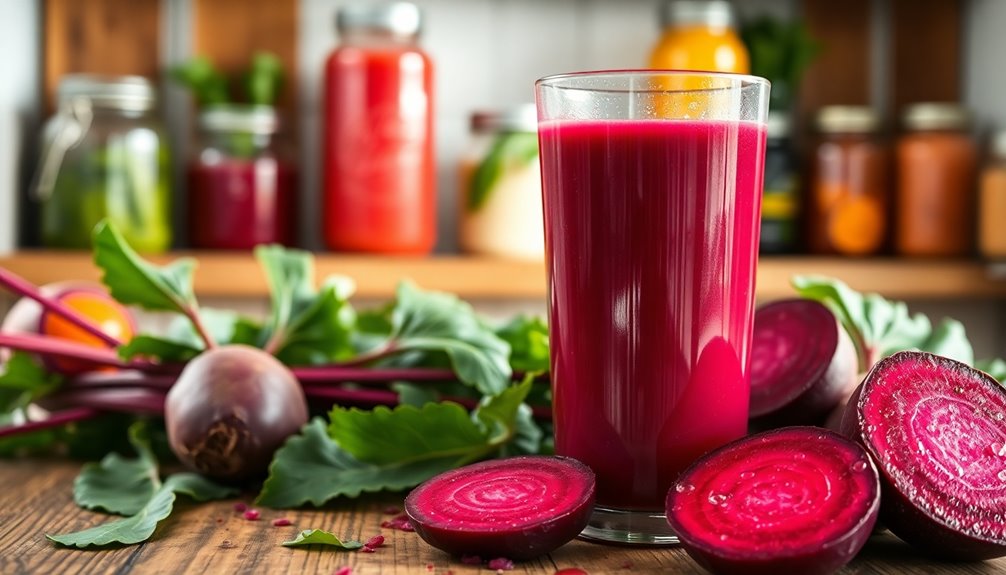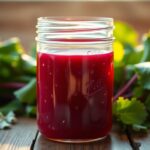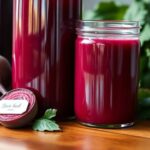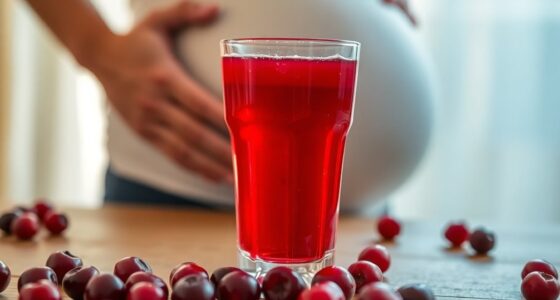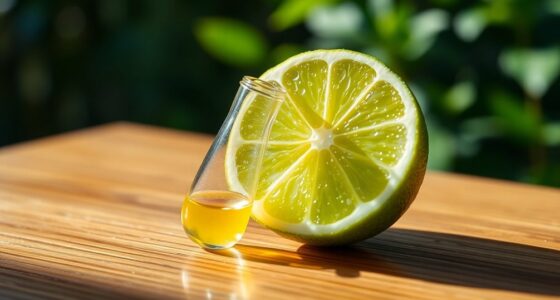Beet juice lasts differently depending on its type. Unopened store-bought beet juice can stay fresh for up to two weeks in the fridge. Once you open it, you should drink it within 2 to 5 days for the best taste and health benefits. If you make homemade beet juice, try to consume it right away. It can last 24 to 48 hours in the fridge. If you want to learn how to store it properly and more tips, keep going!
Key Takeaways
- Unopened store-bought beet juice lasts up to two weeks in the refrigerator.
- Opened store-bought beet juice should be consumed within 2 to 5 days.
- Fresh homemade beet juice is best consumed immediately but can last 24 to 48 hours in the fridge.
- Freezing beet juice extends its shelf life to about six months.
- Always check for signs of spoilage, such as sour smell or mold, before consumption.
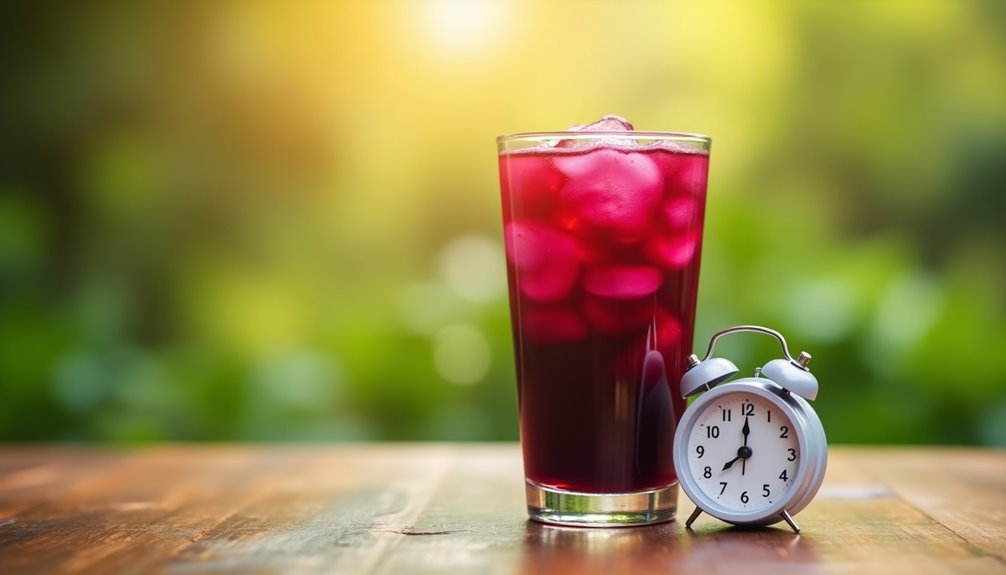
Have you ever wondered how long beet juice actually lasts? If you're a fan of this vibrant, healthy drink, you might be curious about how to keep it fresh and maximize its shelf life. Whether you've bought a bottle from the store or made your own homemade beet juice, proper storage is key to enjoying it at its best. When stored correctly, beet juice can remain fresh for a surprising amount of time, but it's essential to know the specifics.
For unopened store-bought beet juice, you're in luck! It can last up to two weeks in the refrigerator, so you can stock up without worrying too much. Once you crack it open, though, you should consume it within about 2 to 5 days. After opening, the juice's quality starts to decline, so try to finish it within that timeframe for the best taste and health benefits.
If you’ve made fresh homemade beet juice, it’s delicious and nutritious, but it’s best consumed immediately. If you can’t finish it right away, you’ve got a little leeway; it can last 24 to 48 hours in the fridge when stored in an airtight container. To maximize its freshness and nutrient content, be sure to keep the juice refrigerated and avoid exposing it to light. When considering how long beet juice lasts, it’s essential to note that its vibrant color and taste may begin to diminish over time. If you notice any off smells or changes in flavor, it’s best to err on the side of caution and discard the juice.
If you want to extend the shelf life of your beet juice, consider freezing it. You can freeze beet juice to maintain its goodness for about six months when stored in an airtight container. Just remember to leave some space in the container since liquids expand when frozen. This way, you can always have a refreshing glass ready whenever you crave that earthy sweetness.
When it comes to identifying the signs of spoilage, it's crucial to be vigilant. If your beet juice develops a sour smell or taste, darkens in color, or shows any signs of mold or a fizzy texture, it's time to toss it. These signs indicate that your juice has gone bad, and consuming it could lead to unpleasant experiences. Always trust your senses; if something seems off, it's better to err on the side of caution.
Proper storage practices are essential for maintaining the freshness and quality of your beet juice. Store it in the refrigerator at all times, and avoid leaving it at room temperature, as warm conditions can accelerate spoilage. An airtight container is your best friend; it keeps out harmful bacteria and minimizes exposure to air, which can degrade the juice's quality.
Frequently Asked Questions
How Long Is Beet Juice Good in the Fridge?
When you store beet juice in the fridge, its longevity depends on whether it's opened or unopened.
If it's unopened store-bought, you can expect it to stay fresh for about two weeks.
Once you crack it open, it's best to drink it within 2-5 days.
If you've made fresh beet juice at home, try to enjoy it right away, but it can last up to 48 hours in the fridge if needed.
Can Beet Juice Be Bad?
Yes, beet juice can go bad. You should always check for signs of spoilage, like a sour smell or taste, darker color, or mold.
If you notice a fizzy texture or cloudy appearance, it's best to discard it immediately. Consuming expired beet juice can lead to foodborne illnesses, so it's crucial to be mindful of its freshness.
Always trust your senses; they'll help you determine if the juice is still good to drink.
What Is the Shelf Life of Beetroot Juice?
You might think beetroot juice lasts forever, but alas, it doesn't!
If you keep unopened store-bought beet juice in the fridge, it'll stick around for about two weeks.
Once you pop that seal, you've got about 2-5 days to drink it up before it starts to go south.
Fresh homemade juice? Best enjoyed right away, but it can hang around for 24-48 hours if you store it right!
How Long Does Beet Juice Last in Your System?
When you drink beet juice, your body absorbs nitrates within 2-3 hours, giving you an immediate boost for exercise.
These elevated nitrate levels can stay in your system for about 6 hours before returning to normal.
If you consistently consume beet juice over several days, you can enhance your muscle nitrate stores, improving endurance and delaying fatigue during workouts.
Just be aware that you might notice pink urine for up to 12 hours afterward.
Conclusion
In conclusion, beet juice can last about 3-5 days in the fridge when stored properly. It's fascinating to note that just one cup of beet juice can lower your blood pressure by up to 10 mmHg, showcasing its powerful health benefits. So, make the most of your fresh juice while it lasts! Remember, the sooner you drink it, the better you'll feel. Don't underestimate the impact of this vibrant drink on your well-being!
Cindy thoroughly researches juicing trends, techniques, and recipes to provide readers with practical advice and inspiration. Her writing style is accessible, engaging, and designed to make complex concepts easy to understand. Cindy’s dedication to promoting the advantages of juicing shines through her work, empowering readers to make positive changes in their lives through the simple act of juicing.

